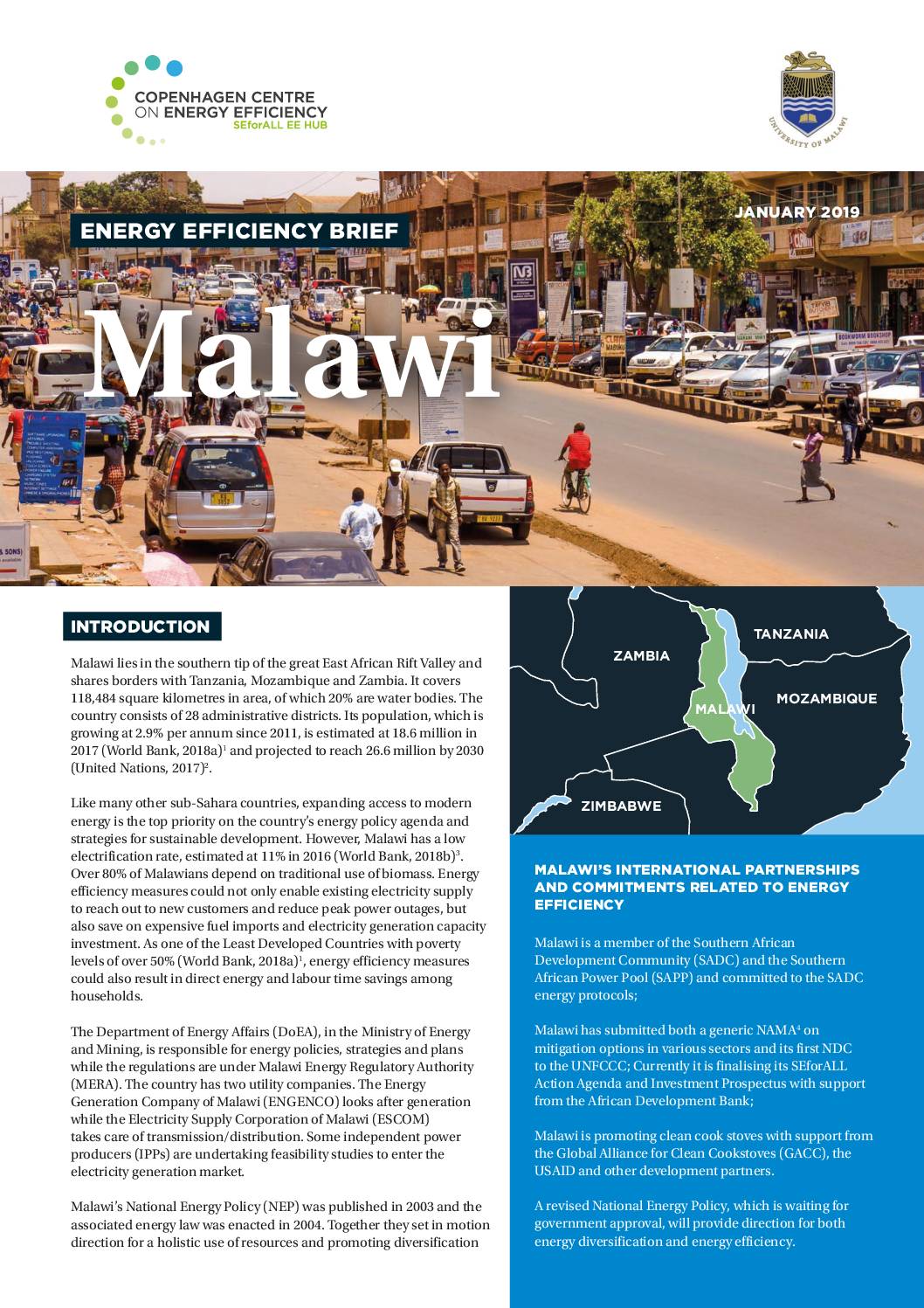Like many other sub-Sahara countries, expanding access to modern energy is the top priority on the country’s energy policy agenda and strategies for sustainable development. However, Malawi has a low electrification rate, estimated at 11% in 2016 (World Bank, 2018b). Over 80% of Malawians depend on traditional use of biomass. Energy efficiency measures could not only enable existing electricity supply to reach out to new customers and reduce peak power outages, but also save on expensive fuel imports and electricity generation capacity investment. As one of the Least Developed Countries with poverty levels of over 50% (World Bank, 2018a), energy efficiency measures could also result in direct energy and labour time savings among households.
Download sourceShare this

Sectors: Buildings, Cities, Industry, Transport
Country / Region: Africa, Malawi
Tags: cities, electricity, electricity generation, energy, energy efficiency, energy policies, international development, solid biofuels, sustainable development, topsIn 2 user collections: City Briefs by the Copenhagen Centre , C2E2 Publications
Knowledge Object: Cities Cluster, Publication / Report
Published by: Copenhagen Centre on Energy Efficiency
Publishing year: 2019
Author: Copenhagen Centre on Energy Efficiency
